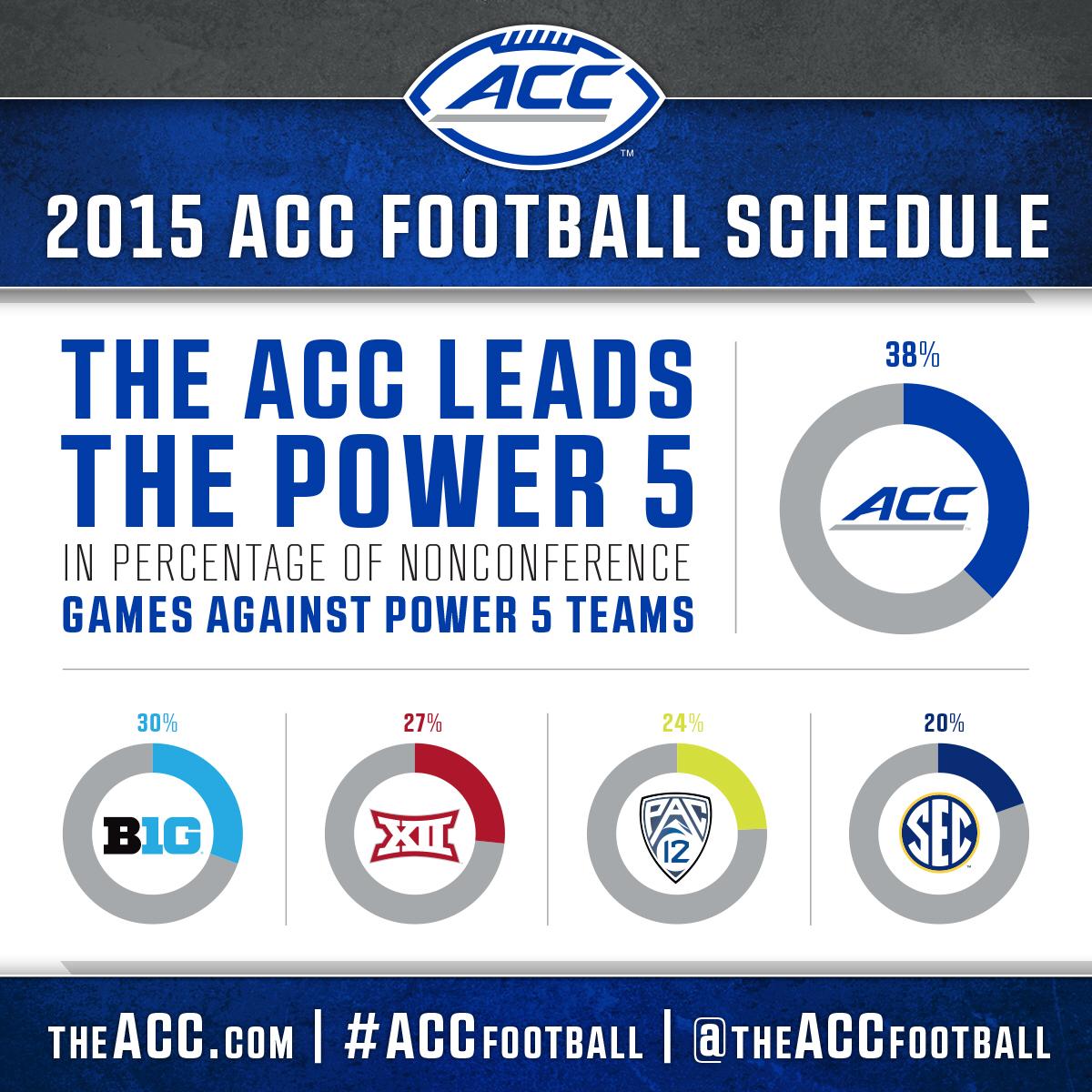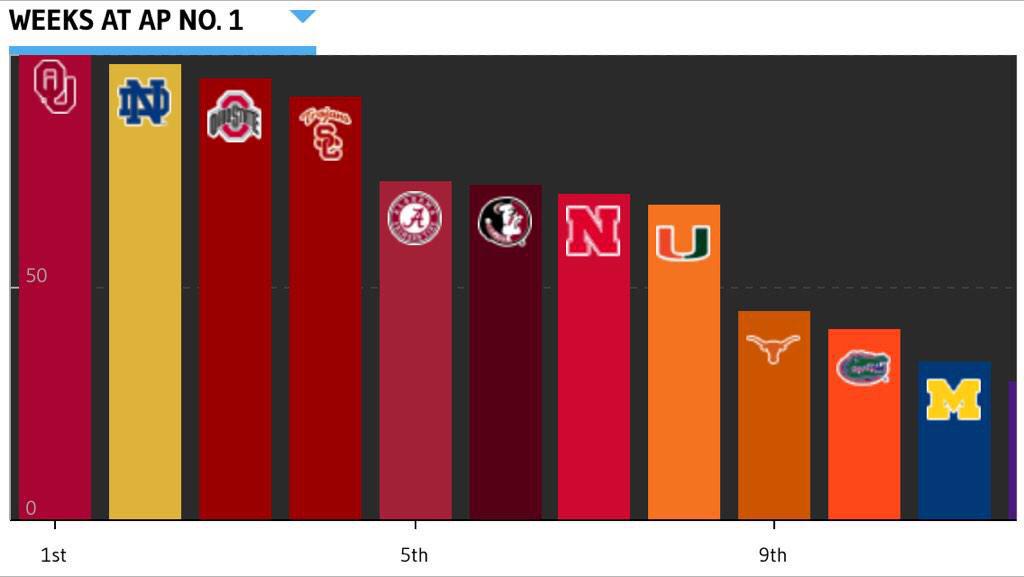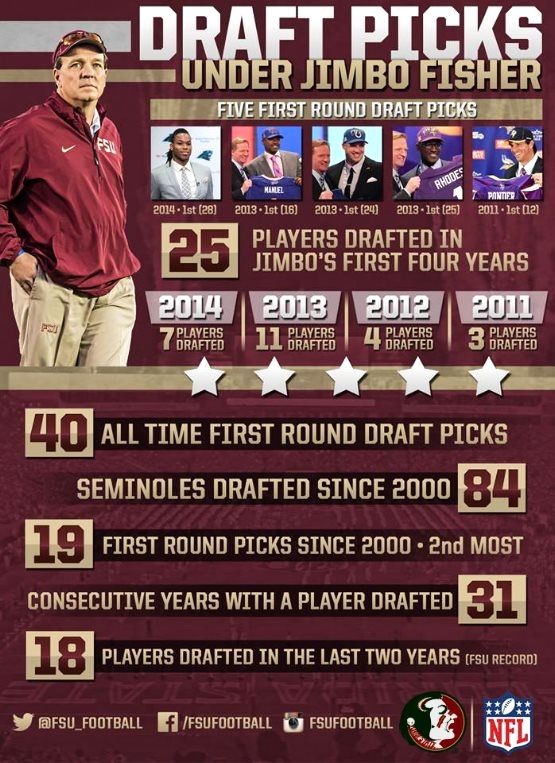Doubt we ever seen any true tangible move forward for FSU here (large increase in research, endowment growth, split COE, full mission med school, etc), but this story is standard fare for what satisfies FSU supporters.....basic fluff.
That said, I like Thrasher and root for him......but don't see any real direction at FSU.
FSU evolving under Thrasher
"John Thrasher did not settle into the president’s chair at Florida State University on Nov. 10 with the intention of making sweeping changes.
He spoke highly of the leadership team assembled mostly by his predecessor, Eric Barron, and vowed to capitalize on its many strengths. FSU needed stability, Thrasher said.
Change came quickly nevertheless. FSU, one of two public universities in Florida with preeminence status (University of Florida is the other) and the additional millions in resources that come with that designation, is beginning to evolve under its new leader.
Between the day FSU’s trustees selected Thrasher on Sept. 23 and his confirmation by the Board of Governors on Nov. 6, Liz Maryanski, vice president for university relations, departed after receiving an offer she couldn’t refuse from Georgia Tech.
Then Garnett Stokes, provost and executive vice president for academic affairs, was hired last month by University of Missouri for a similar position.
Florida State, now led by a 71-year-old former lawmaker, is not the same university it was 12 months ago. New top lieutenants will be joining Thrasher’s team in the months to come, but that’s not all that different.
Controlling the message
Thrasher is not simply a former legislator. He was Speaker of the Florida House of Representatives, a power broker in the Senate and chair of Gov. Rick Scott’s reelection campaign until he became a candidate for president at his alma mater.
He values image and intends to be as hands-on as possible when it comes to shaping the university’s message. Thrasher told the Tallahassee Democrat he is in no hurry to fill the vacancy atop university relations. He has, however, removed longtime FSU spokeswoman Browning Brooks from under government relations and is having her report directly to him on a daily basis.
“I wanted to remove a layer. We talk about messaging and the things I think are important to relay to our key constituent groups,” Thrasher said. “I think public relations and communication are a big, big part of this job.”
He referenced an unflattering story that appeared on the front-page of the New York Times on Friday, Nov. 14, his fifth day in office. Thrasher and Brooks crafted a response that appeared on FSU’s website later that day, but Thrasher would have preferred to have been better prepared, even if the ongoing saga of FSU football players and the treatment they have received from the city ‘s police force is not a situation that he can control.
When tragedy struck 10 days into his presidency — a late-night fatal shooting outside Strozier Library on Nov. 20 — Thrasher received high marks for quickly returning to Tallahassee from New York City and providing strong leadership.
He prides himself on telling FSU’s story. Much of his first six weeks on the job were spent crisscrossing the state he knows so well, talking to large groups of potential donors. By Dec. 12, the date of the first graduation ceremony he would preside over, Thrasher had met with FSU supporters in Miami, Fort Lauderdale (twice), Palm Beach, Jacksonville, Sarasota, Tampa and Winter Park. He also spoke to two groups in Charlotte, N.C., when FSU’s football team was there playing in the conference championship game.
“I think the enthusiasm is pretty good, pretty strong. I think people have rallied around the shooting,” Thrasher said. “I think people think the university handled it in the right way.”
Challenges await
FSU’s presidential search was rife with controversy. The job description, as advertised in The Chronicle of Higher Education, stated that extensive experience in academia was the No. 1 asset for a replacement for Barron, a widely respected climatologist who had been a professor and dean at Penn State and University of Texas at Austin.
Thrasher had been chair of the FSU Board of Trustees, but he had never taught at a university or been an administrator. He was an unconventional candidate, and there was a vocal contingent of students and faculty opposed to his candidacy. It’s unlikely any FSU president has taken office with quite the same challenges Thrasher is facing.
He met several times with Gary Tyson, a computer science professor who is president of the Faculty Senate, prior to his first day in office. He has since spoken at a luncheon meeting of the faculty union and attended his first Faculty Senate meeting.
Thrasher said repeatedly during the interview process that he wanted to improve salaries for FSU’s professors, who are paid less than their peers at UF and well below the national average. As president, he continues to talk to faculty about improving their pay while addressing the collective bargaining agreement.
Longtime music professor Cliff Madsen was one of four faculty members on the 27-member search committee. Like his three colleagues on the committee, he voted against advancing Thrasher to the Board of Trustees.
But Madsen said it is important for the faculty to support Thrasher now that he’s the university’s president. Thrasher needs to be given the opportunity to grow into his new job, Madsen said. He added that he likes what he has seen for far. And Madsen has gone out of his way to share that with Thrasher.
“I’m very impressed so far. I think every decision he’s made has been excellent,” Madsen said. “I’m very hopeful this will continue.”
Tyson, as Faculty Senate president, is a member of the Board of Trustees. He cast one of the two dissenting votes, along with Trustee Peggy Rolando, when the board voted 11-2 in September to hire Thrasher. Now Tyson is one of Thrasher’s liaisons to the faculty.
“The president’s had a good start, I think, but it’s still too early to tell,” Tyson said. “Everything he told me before, he’s followed through on. That’s good. I think the next big thing is a search for a provost.”
Thrasher is scheduled to meet with Don Gibson on Monday. Gibson, former dean of FSU’s College of Music, led the provost search that resulted in hiring Stokes in 2011.
Thrasher said he wants input from deans and other faculty before beginning a national search for a new provost. He hopes that Sally McRorie, the interim provost who held that position for seven months in 2013 while Stokes was promoted to interim president, will be a candidate for the permanent position.
“I have great confidence in Sally. I don’t think we’ll miss a beat with her,” Thrasher said.
Capitol connections
Eric Barron, Thrasher’s predecessor, needed time to figure out the rules of engagement with the Legislature, which determines much of the funding for Florida’s public universities. By 2012, with two years on the job, Barron had emerged as a leader among the state university presidents.
He was not shy about sharing his opinions or his analysis with the Board of Governors, the body that oversees the university system. BOG members regularly sought his counsel during his final year in office.
Thrasher, by comparison, needs no learning curve. He knows the power game at the Capitol as well as anyone. It was one of the qualities FSU trustees cited when they made the decision to hire him.
The 2015 legislative session doesn’t officially start until March, but for those who know how the system operates, the game is underway – and Thrasher is fully engaged.
Incoming Senate President Andy Gardner and Steve Crisafulli, the new House Speaker, both have ties to the University of Central Florida, which coincidently happens to want $210 million from the Legislature to establish a new downtown Orlando campus.
“We’re going to have to make a case for the things we need too,” Thrasher said. “I think that’s where whatever experience I have down there will serve us well.”
It was apparent at the Nov. 6 BOG meeting at Florida Atlantic University in Boca Raton that Thrasher’s fellow university presidents – not to mention BOG members and Chancellor Marshal Criser III – will be turning to him for insight into the legislative process. Tyson, FSU’s Faculty Senate president, was at that meeting and was impressed by the level of respect shown to Thrasher.
“It’s pretty clear he’s in his element representing FSU outside the university. He’s extraordinarily good at those things,” Tyson said. “I think there’s still a lot to learn at running a university, but I think he understands that.”
FSU BOT Chair Allan Bense wasn’t surprised to see the other presidents defer to Thrasher during Thrasher’s first official BOG meeting. Bense, a former House Speaker as well, is intimately familiar with the legislative process.
“When you’ve been a Speaker of the House and rules chair of the Senate, you get it,” Bense said. “I think John will help, but I’m not sure they will be leaning on him completely. I suspect they will tap him. Who wouldn’t?”
Thrasher already has begun laying the groundwork for a split of the joint FAMU-FSU College of Engineering, considered essential by FSU administrators for the university’s advancement nationally but opposed fiercely by FAMU leaders. As a senator, he helped dedicate $500,000 in April for an analysis of the college, and he helped draft a response to the initial report by the consulting group hired by BOG.
“I’m committed to working with the board, working with Elmira (FAMU President Mangum), and we’ll see where it goes,” he said. “It’s going to be an incremental thing, at best. If there are some reorganizational things we can do to make it better, to help the students, we would do that.”
Thrasher was asked during the interview process to name a university president outside of Florida who he knew personally, someone he could call if needed. He answered by saying he knew every member of Congress from Florida and could call any of them on a moment’s notice. That includes Rep. Gwen Graham, the Tallahassee Democrat who unseated Republican incumbent Steve Southerland in November. She has already visited with Thrasher in his Westcott Building office. Thrasher wanted to enlist her help lobbying the National Science Foundation to keep the National High Magnet Field Laboratory on Florida State’s campus.
“I think Gwen will do real well up there in Washington. I think she’ll fit in across the aisle,” Thrasher said. “I look forward to working with her. I like Gwen a lot.”












